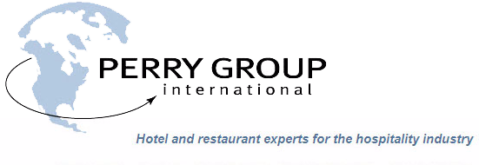Hotels operate on long term plans, and rely in part on stable management over time. That said, if your hotel is struggling, or if your manager leaves, you may face a transition period. You want to conduct a search and evaluate your options thoroughly, but you also need someone to keep things running while you do so. This is the space where temporary hotel management serves a critical role.
During these transitional times, you often need to move to a shorter-term planning approach. Building out a 90-day plan can help you focus on the transition itself, either righting the ship or maintaining stability so your new management team is set up to succeed.
Why Hotels Avoid Short-Term Thinking
Short-term thinking usually does not work for a hotel. You function in a world of seasonal shifts and occupancy rates that change with the local, national, and even international economies. If you lock in too intently on a particular week or month or even year, you can get a false look at your hotel’s performance. High short-term performance can trick you into thinking you have no concerns. Low short-term performance, on the other hand, can trigger unnecessary panic.
You build out financial projections for the long term to avoid putting too much meaning onto temporary fluctuations. They tend to take into account the short-term variations that you can expect to encounter. You build in a capital budget, revenue projections, improvement plans, and cost projections that cover you across anywhere from one to ten years. You track interim numbers along the way, but do so while building in the context required to understand them.
Short-Term Planning for Hotel Overhauls
The planning becomes entirely different for temporary hotel management. Here, think about the primary purpose of an interim plan. If you have a hotel in distress, you need to focus on bringing everything into order. If your invoices are lagging behind, work to prioritize these and get them up to date. You want to find ways to cut costs and boost revenue quickly. Resolve payroll issues, and fix what is wrong now so you can return to looking forward.
In this situation, a 90-day plan is critical to working through the transition. An interim manager should approach management in this situation not as planning out for the future of the next management team, but in building a solid foundation for them. Chart out the financial deficiencies and a path to address them through a 30-day, 60-day, and 90-day plan. Righting the ship cannot wait for ideal conditions to emerge.
Maintaining Performance in Transition Periods
Not all transitions are emergencies. Effective managers sometimes grow into new roles, retire, or simply choose to move on. The hotel may be performing very well, but still needs to move forward to a new team. Here, the goal is not to overhaul a poorly performing hotel, but to manage in a way that at least maintains good performance. Interim managers face what is still a difficult task, stepping into a successful situation and needing to maintain it.
Here, too, forming a strong 90-day plan is important. Your goals with the temporary management should include identifying what is working well to keep it in place. Even here, though, you should look for any irregularities or areas that have room to improve. Look at the financials and remaining team members’ morale. Examine the property and find areas that need maintenance attention. Focus on maintaining the positive and addressing the negative to set the next team up for both continued success and even improvement.
Growing into Greater Success
Temporary hotel management teams, by definition, should not focus on long term goals. You bring them in for inflection points that help you move from the past to the future. In between, your planning should reflect the goal of building a bridge between management teams. By focusing on a 90-day window, you plan to work quickly and effectively while also working with the next change in mind. A short-term plan gives you a chance to drive quickly toward a bright future at your property.






